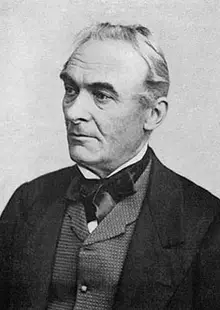
Prosper Mérimée
Prosper Mérimée was a French writer in the movement of Romanticism, one of the pioneers of the novella, a short novel or long short story. He was also a noted archaeologist and historian, an important figure in the history of architectural preservation. He is best known for his novella Carmen, which became the basis of Bizet's opera Carmen. He learned Russian, a language for which he had great affection, before translating the work of several notable Russian writers, including Pushkin and Gogol, into French. From 1830 until 1860 he was the inspector of French historical monuments, responsible for the protection of many historic sites, including the medieval citadel of Carcassonne and the restoration of the façade of the cathedral of Notre-Dame de Paris. Along with the writer George Sand, he discovered the series of tapestries called The Lady and the Unicorn, arranging for their preservation. He was instrumental in the creation of Musée national du Moyen Âge in Paris, where the tapestries now are displayed. The official database of French monuments, the Base Mérimée, bears his name.
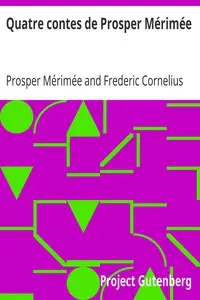
Quatre contes de Prosper Mérimée
Includes English introduction, notes, and vocabulary
By Prosper Mérimée
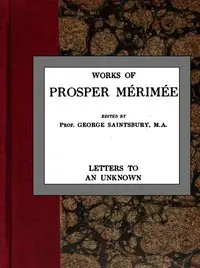
Letters to an Unknown
"Letters to an Unknown" by Prosper Mérimée is a collection of letters written in the mid-19th century. It presents an intimate correspondence between ...
By Prosper Mérimée

Colomba
"Colomba" by Prosper Mérimée is a novel written in the early 19th century, set against the picturesque backdrop of Corsica. The story unfolds with Col...
By Prosper Mérimée
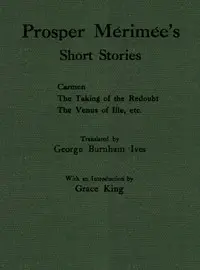
Prosper Mérimée's Short Stories
"Prosper Mérimée's Short Stories" by Prosper Mérimée is a collection of fictional narratives likely written during the mid-19th century. The collectio...
By Prosper Mérimée
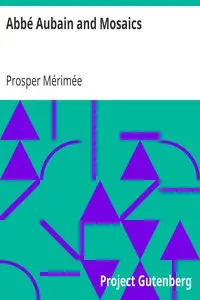
Abbé Aubain and Mosaics
"The Abbé Aubain and Mosaics" by Prosper Mérimée is a collection of short stories written in the early 19th century. The volume features various narra...
By Prosper Mérimée
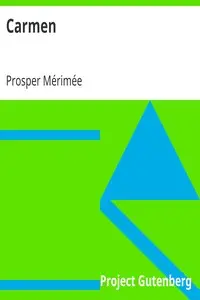
Carmen
"Carmen" by Prosper Mérimée is a novella written during the early 19th century. The story introduces the tumultuous and captivating life of a young gi...
By Prosper Mérimée

How The Redoubt Was Taken 1896
"How The Redoubt Was Taken" by Prosper Mérimée is a historical account written in the late 19th century. The book recounts a soldier's first experienc...
By Prosper Mérimée
